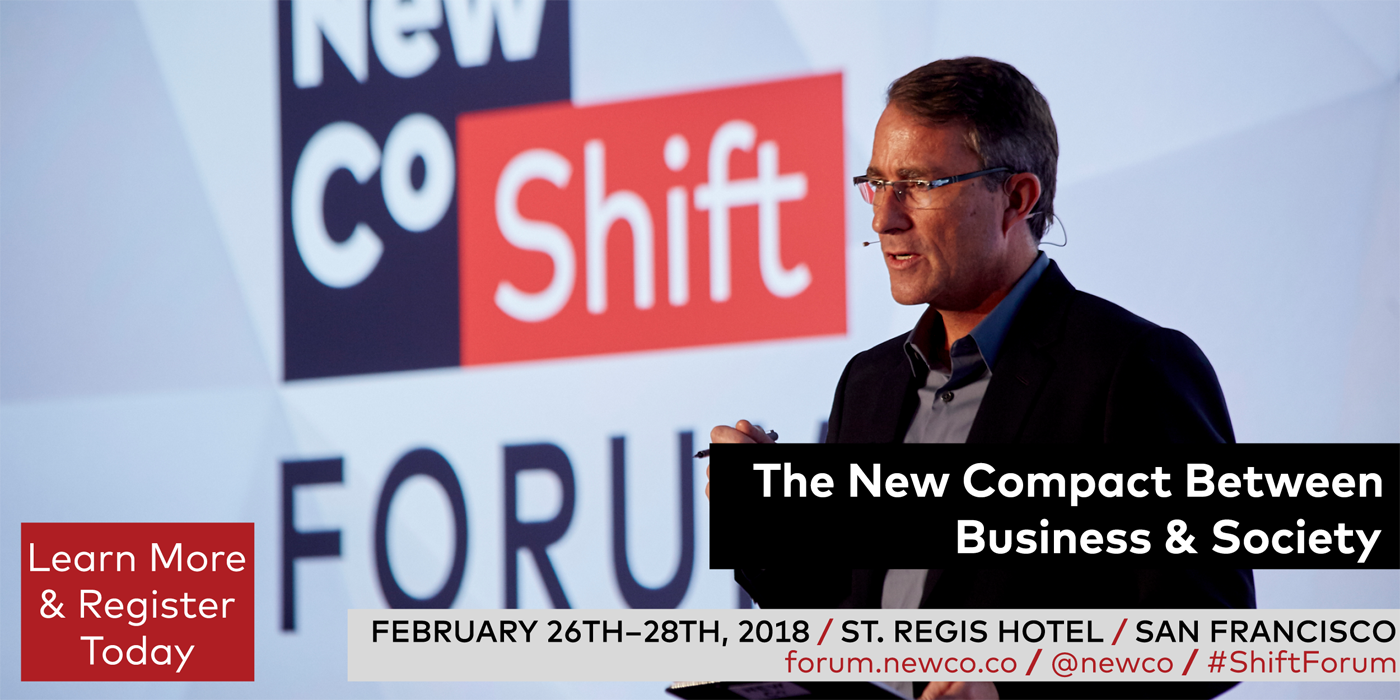The Future of Management – NewCo Shift

Management thinking is moving towards an understanding of human action as a process of sense making. What an organization becomes emerges from the sense-making relationships of its members, rather than being determined by the choices of few powerful individuals.
Management is historically seen as a collection of tasks involving planning, organizing, controlling and incentivizing. A competent manager is believed to be able to analyze organizational and task requirements plus the emotionally loaded human motivations. Successful management has then been able to remove conflict and uncertainty and accurately predict and plan the future.
The future is accordingly described as goals and performance targets. Following this logic, the role of management is to control the movement into a chosen future. But what management really is, is about reduction of anxiety. Anxiety levels in the individual experiences most often depend on the perceived level of control people have over themselves and their environment. This drives our need to believe that someone is, or should be, in control.
The opposites of being in control, such as responsiveness as opposed to planning, not knowing as opposed to knowing or differences as opposed to consensus should be removed by management. Success is equated with equilibrium.
However, the ability to do this in a complex world that is highly sensitive to the tiniest changes is questionable. Neither can rational causality be applied to humans because human action is not deterministic. The idealistic view of a manager as one who is in control is not consistent with our practical experience, or with modern science. From the point of view of the sciences of complexity, an organization is not even a system, but should be understood as a pattern, or as interconnected patterns in time.
These interconnected patterns are the results of self-organizing processes across the network forming the organization. Many events, local interactions generate emergent outcomes that cannot be traced back to any specific management action. Looking towards the future, we create what happens next, without knowing what will happen next.
The organization, then, is no longer self-regulating in a cybernetic sense, but self-influencing in a complex sense. Self-influence as a concept is not necessarily positive, it can lead both to self-sustaining and self-destructive behaviors.
The key management capability is not being in control, but to participate and influence the formation of sense making and meaning. It is about creating a context that enables connectedness, interaction and trust between people.
Most people believe that the role of leaders is to choose strategic directions and then persuade others to follow them. A modern view of strategy is about exploration and experiments, a search process of trial and error. The openness to the possible through the search process leads to having to live with anxiety and not knowing. Work needs to equal learning.
Protocols
Almost all management practices we have from goal setting to budgeting are cybernetic in the sense that quantified targets are set at some point in the future and the path toward the goal is planned and then controlled. Variance is continually fed back to determine needed management adjustments to bring performance back to the target path. The still dominant ways of management thinking are based on Newtonian dynamics with the belief that a manager can find leverage points for interventions to initiate a known change. The manager’s role is with these “if-then” causal rules.
What (cybernetic) management used to be, is tomorrow done by algorithms and the new enabling/constraining protocols. It is about individuals acting with each other according to the fewest number of rules that can produce global, emergent patterns of coherent, interactive behavior.
Post-blockchain smart contracts make possible, in economically viable ways, that person A can be part in the work/learning of person B. B again plays part in the work/learning of person C, who plays part in the work/learning of A. Work is by default networked cognition. Value creation is event-based and contextually highly interdependent cooperation.
No one agent is choosing the number and strength of connections for other agents in the network. While no agent can be in control of a complex system, it is evolving in a controlled manner because of the conflicting constraints, the differences in the network. This is why the goal is not to reach consensus. What an organization becomes emerges from the relationships of its members rather than being chosen by some individuals.
The fundamental dynamic of evolution is not competitive selection, but interactive cooperation. Management in the new economic spaces is then about self-influencing cooperation.
.

